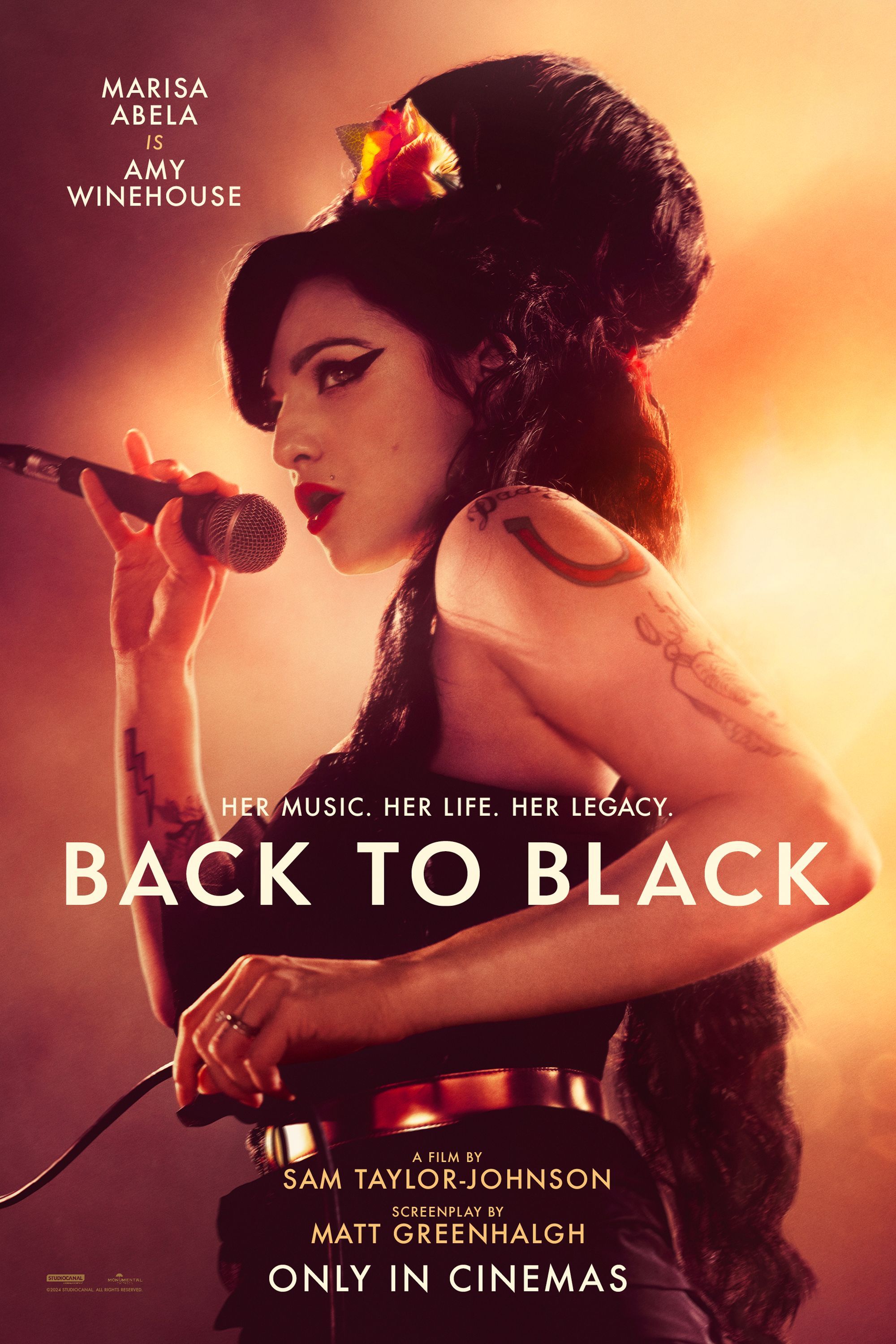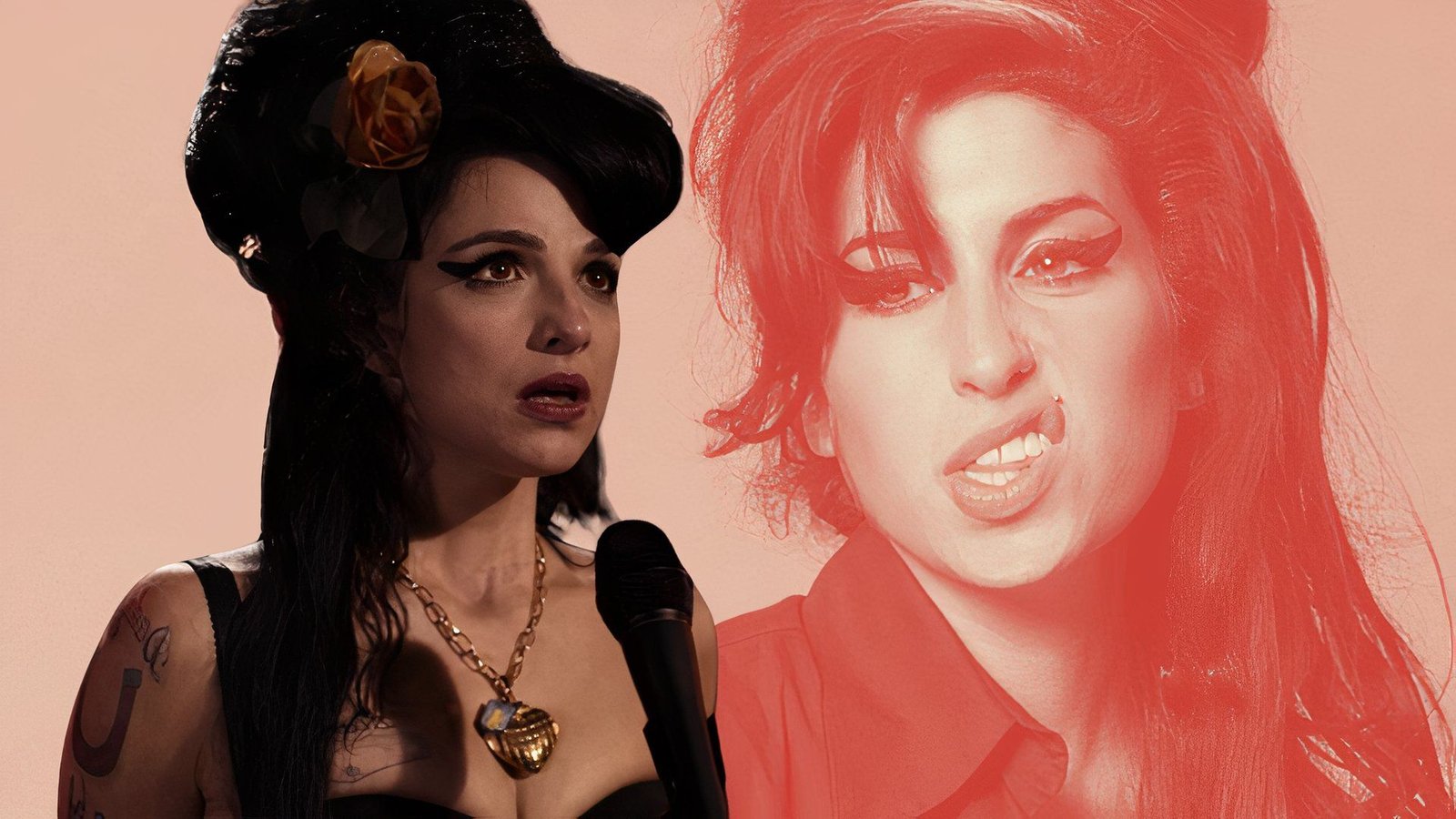Summary
- Music biopics remain popular, with films about iconic artists like Amy Winehouse drawing in audiences despite mixed reviews.
- Back to Black
focuses heavily on Amy’s personal struggles, neglecting her artistry and omitting key collaborations, such as with Mark Ronson. - The film’s portrayal of Amy’s addiction as self-inflicted and simplistic is seen as disrespectful and lacking depth compared to the 2015 documentary.
Even after many believed Walk Hard definitively killed the music biopic, the genre remains alive and well almost two decades later. With films about Bob Dylan, Michael Jackson, and all four Beatles on the way, it’s clear audiences remain enamored of rock and pop’s greatest legacies, regardless of the reviews. And Amy Winehouse is the latest figure to get the biopic treatment, with Back to Black opening nationwide this weekend.
But even for a genre with such a notoriously hit-and-miss reception, the reviews for Back to Black have been harsh. Detractors have argued that, despite strong work from Marisa Abela in the lead role, the film is too preoccupied with her tumultuous personal life and doesn’t give enough attention to her value as an artist. And those are some of the kinder reviews; others have said the movie outright disrespects Amy or that it treats her tragic death as an inevitability to the point of erasing her agency.
Amy Winehouse’s Artistic Legacy Is Barely Touched Upon

Back to Black
- Release Date
- May 10, 2024
- Director
- Sam Taylor-Johnson
- Runtime
- 2h 2m
It can’t be overstated how heartbreaking Amy Winehouse’s death was at the time. The tabloids had ridiculed her for years for her worsening alcoholism and mental health struggles, and what seemed at one point like a series of reckless and self-destructive antics now seemed like an unambiguous cry for help from a tortured soul in a dark place. Jokes at her expense immediately became taboo, and the people who once mocked her promptly shifted to praising her artistic legacy.
Considering how publicized her personal life was, it’s easy to look at Winehouse through a tragic lens and let her death define her. But this ignores the fact that she was an incredible talent, with one of the most expressive singing voices ever, even inspiring artists like Adele and Billie Eilish. The highest praise one can give her is that she could’ve easily stood alongside the likes of Ella Fitzgerald or Nina Simone as she channeled the magic of ’50s soul music in a decade when most artists in that genre went contemporary.



Upcoming Biopics That Will Continue the Hollywood Trend
Hot on the heels of Elvis and Blonde’s success, there are several upcoming biopics that will continue the trend.
Back to Black centers a large chunk of its plot around Amy’s relationship with her on-off boyfriend and eventual husband, Blake Fielder-Civil (Jack O’Connell). The two had a notoriously strained relationship, as Fielder-Civil got her hooked on drugs while descending into addiction himself, and by the time they divorced in 2009, it was clear they were toxic for each other. However, while their relationship is a key part of Amy’s story (many feel he’s the one who kickstarted her eventual spiral), it feels reductive to frame her story around it entirely.
Crucially, Amy’s legacy as an artist is only intermittently touched upon. As has become so common in music biopics (and Walk Hard so effectively ridiculed), her creative process is frequently reduced to brief moments where she conceives of a melody without exploring how her personal life informed her work. Her famous collaboration with producer Mark Ronson, who helped her write her most famous hits (and later wrote “Uptown Funk” and “I’m Just Ken”), is absent entirely. The result is a film that is more interested in Amy’s downfall than her legacy as an artist.
Back to Black Sugarcoats the Toxic Influences in Amy’s Life
But what’s more troubling is how Back to Black paints Amy’s worsening addiction as largely self-inflicted and sugarcoating the more toxic influences she had in her life. The devastating 2015 documentary about her life, Amy, explored said influences in-depth, portraying Fielder-Civil as willing to use his lover to fuel his own addiction and Amy’s father, Mitch, as neglectful of his daughter’s struggles (and the two blasted the documentary). Maybe the single most telling thing about Back to Black is that Amy’s estate had a key hand in the film creatively (the upcoming Michael Jackson biopic is already polarizing people for this very reason).
In Back to Black, Mitch Winehouse (Eddie Marsan) is painted as a caring father trying to keep his daughter from going off the deep end. Similarly, Fielder-Civil is regularly shown urging Amy to go to rehab. While we don’t pretend to know which film’s presentation of the facts is the closest to what really happened, the fact that Back to Black seems to go out of its way to dismiss the idea that others fueled Amy’s spiral feels incredibly suspect. Considering the film is estate-approved, its portrayal of Amy’s addiction as self-inflicted feels like a disservice to her (similarly to how Bohemian Rhapsody, which had creative input from the surviving Queen members, felt ignorant to Freddie Mercury’s legacy).



Unsung Hero Stars Daisy Betts and Kirrilee Berger on Inspiring Families and Musicians Everywhere
The leading ladies of Lionsgate’s new movie spoke to MovieWeb about meeting music icons like Lady A on set and working alongside Candace Cameron Bure.
Worse still, Back to Black implies that a large part of Amy’s inner turmoil was her inability to have children. As presented in the film, Amy and Fielder-Civil spend years trying to conceive, and their relationship deteriorates as the pregnancy tests come up negative. Never mind that so famously chaotic a couple wouldn’t have been able to set aside time to have children, the plot point is grossly reductive and is too neat an explanation for Amy’s demons. People struggling with intense mental health issues can’t have all their problems neatly explained by one cause, and whether the film intended this to be the case or not, it feels ignorant of Amy’s autonomy at best and outright sexist at worst.
The Guardian, which is familiar with this topic, has spoken at length about this particular plot point, but it’s still representative of the film’s largest issue. For a film about one of the most famously tortured artists of the last couple of decades, it doesn’t seem interested in exploring what caused her pain or how her pain informed her artistry.
Back to Black Is Borderline Disrespectful of Amy
We have no doubt that the filmmakers and Amy Winehouse’s family intended for Back to Black to be a heartfelt tribute to one of the greatest artists of the century (and for what it’s worth, director Sam Taylor-Johnson intended the film to be non-judgmental). Even other critics, like Mark Kermode, have felt the controversy is overblown and unrelated to the film’s actual quality, while some fans have called out Back to Black as offensive and disrespectful. Whether they meant to or not, Back to Black ignores Amy’s creative process and lets her tragedy define her entire story.
For an artist who famously dealt with personal demons while captivating listeners worldwide, that can’t help but feel disrespectful of her. Moreover, it’s simply unnecessary; there’s nothing the film covers that wasn’t already handled with more empathy and thought in the 2015 documentary Amy, which explores both her artistry and inner demons and is much more deserving of your time. Back to Black is playing in theaters now. Amy is available to rent on Prime Video.


















